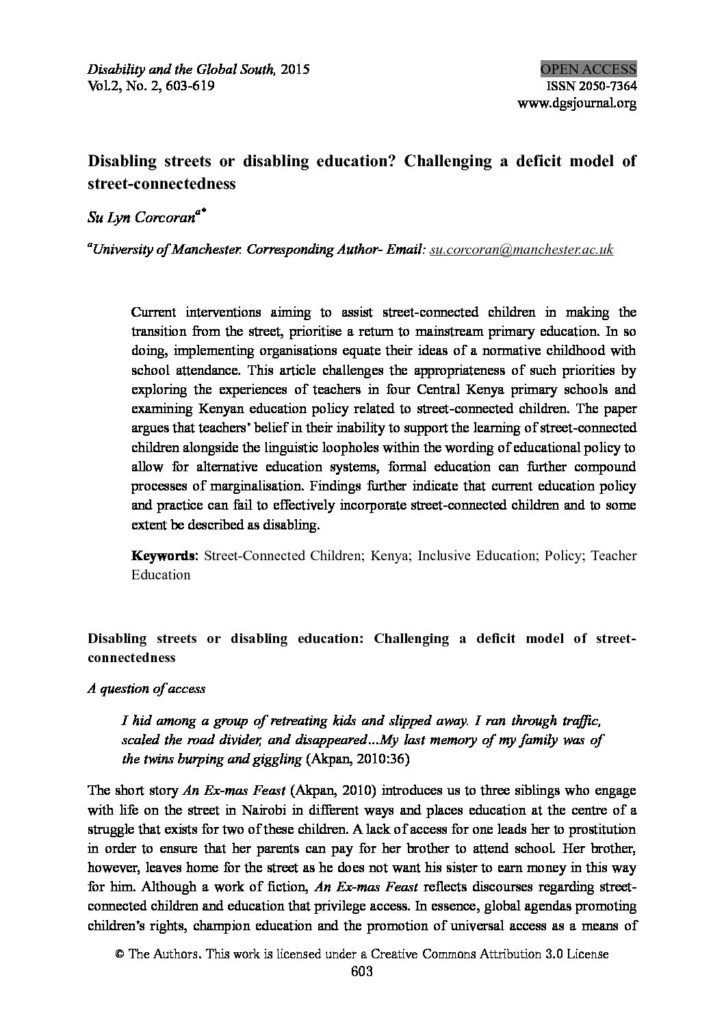
Disabling streets or disabling education Challenging a deficit model of street-connectedness
Summary
This article is published in Disability and the Global South. It is distributed under a Creative Commons Attribution 3.0 License.
Current interventions aiming to assist street-connected children in making the transition from the street, prioritise a return to mainstream primary education. In so doing, implementing organisations equate their ideas of a normative childhood with school attendance. This article challenges the appropriateness of such priorities by exploring the experiences of teachers in four Central Kenya primary schools and examining Kenyan education policy related to street-connected children. The paper argues that teachers’ belief in their inability to support the learning of street-connected children alongside the linguistic loopholes within the wording of educational policy to allow for alternative education systems, formal education can further compound processes of marginalisation. Findings further indicate that current education policy and practice can fail to effectively incorporate street-connected children and to some extent be described as disabling.
Discussion
Users can discuss this report and make suggestions for future updates. You must be signed in to submit a comment.
No comments
Join the conversation and
Become a Member Existing member loginbecome a member.